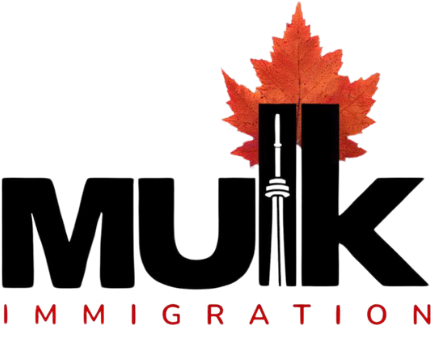LMIA Exempt Work Permit in Canada
In Canada, LMIA (Labour Market Impact Assessment) is a crucial document required for most foreign workers to obtain a work permit. However, there are certain situations where individuals may be exempt from this requirement, allowing them to apply for a work permit directly without the need for an LMIA. This is known as an LMIA Exempt Work Permit.
LMIA exemptions are typically granted in cases where the employment is considered to have a positive impact on the Canadian labor market or where there are specific agreements or programs in place between Canada and other countries. Some common categories under which individuals may qualify for an LMIA Exempt Work Permit include:
1. International Agreements: Canada has entered into various international agreements that facilitate the exchange of workers without requiring an LMIA. Examples include NAFTA (North American Free Trade Agreement), now known as CUSMA (Canada-United States-Mexico Agreement), and the Comprehensive Economic and Trade Agreement (CETA) with the European Union.
2. Intra-Company Transfers: Employees of multinational companies may be eligible for an LMIA Exempt Work Permit if they are being transferred to a Canadian branch, subsidiary, or affiliate of the company.
3. Spousal Work Permits: Spouses of certain temporary foreign workers or international students in Canada may be eligible to work without an LMIA.
4. Post-Graduation Work Permits: International students who have graduated from eligible Canadian institutions may obtain an open work permit without an LMIA for a duration of up to three years, allowing them to gain valuable work experience in Canada.
5. Significant Benefits to Canada: Certain occupations or individuals with unique skills and experience may be deemed to provide significant economic, social, or cultural benefits to Canada, making them eligible for an LMIA exemption.
It’s important to note that while an LMIA Exempt Work Permit exempts individuals from the LMIA requirement, they still need to meet other eligibility criteria for a work permit, such as proving they will leave Canada once their work permit expires, demonstrating they have enough funds to support themselves and their family members while in Canada, and passing medical and security checks.
Applying for an LMIA Exempt Work Permit involves submitting the necessary documentation to Immigration, Refugees, and Citizenship Canada (IRCC), either online or through a visa application center, and paying the required fees. The specific requirements and procedures may vary depending on the individual’s circumstances and the category under which they are applying.
LMIA exemptions are typically granted in cases where the employment is considered to have a positive impact on the Canadian labor market or where there are specific agreements or programs in place between Canada and other countries. Some common categories under which individuals may qualify for an LMIA Exempt Work Permit include:
1. International Agreements: Canada has entered into various international agreements that facilitate the exchange of workers without requiring an LMIA. Examples include NAFTA (North American Free Trade Agreement), now known as CUSMA (Canada-United States-Mexico Agreement), and the Comprehensive Economic and Trade Agreement (CETA) with the European Union.
2. Intra-Company Transfers: Employees of multinational companies may be eligible for an LMIA Exempt Work Permit if they are being transferred to a Canadian branch, subsidiary, or affiliate of the company.
3. Spousal Work Permits: Spouses of certain temporary foreign workers or international students in Canada may be eligible to work without an LMIA.
4. Post-Graduation Work Permits: International students who have graduated from eligible Canadian institutions may obtain an open work permit without an LMIA for a duration of up to three years, allowing them to gain valuable work experience in Canada.
5. Significant Benefits to Canada: Certain occupations or individuals with unique skills and experience may be deemed to provide significant economic, social, or cultural benefits to Canada, making them eligible for an LMIA exemption.
It’s important to note that while an LMIA Exempt Work Permit exempts individuals from the LMIA requirement, they still need to meet other eligibility criteria for a work permit, such as proving they will leave Canada once their work permit expires, demonstrating they have enough funds to support themselves and their family members while in Canada, and passing medical and security checks.
Applying for an LMIA Exempt Work Permit involves submitting the necessary documentation to Immigration, Refugees, and Citizenship Canada (IRCC), either online or through a visa application center, and paying the required fees. The specific requirements and procedures may vary depending on the individual’s circumstances and the category under which they are applying.

